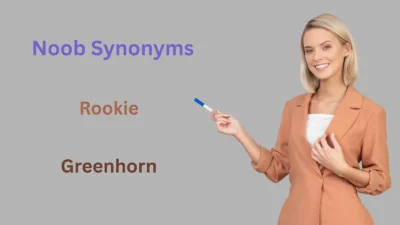Mind games synonyms such as manipulation, deceit, psychological tactics, and gaslighting, describe actions meant to influence, confuse, or dominate someone’s thoughts and feelings. For example, “manipulation” focuses on control through subtle influence, while “deceit” highlights hidden motives and dishonesty. These words capture different shades of mental strategy, emotional pressure, and psychological influence.
If you’re writing about relationships, power dynamics, or psychology, choosing the right synonym for mind games helps you express intent and love bombing with clarity.
These synonyms of mind games not only expand your vocabulary but also reveal how people use mental tactics to gain control, hide the truth, or test boundaries. From emotional manipulation to clever strategy, the language of mind games shows the power of influence and perception.
What Does Mind Games Mean?
Mind games refer to psychological strategies used to manipulate, confuse, or control others, often for personal advantage. They may involve:
- Emotional manipulation
- Deception or misleading behavior
- Testing loyalty or reactions
- Playing with someone’s trust or feelings
It’s not always about intelligence—it’s about intent. Mind games often blur the line between cleverness and cruelty, showing how psychology can be used to influence behavior or emotions.
Synonyms & Related Words for Mind Games (And When to Use Them)
1. Manipulation
Meaning: The act of controlling or influencing someone’s behavior or emotions deceptively or unfairly.
When to Use: Ideal for describing emotional or psychological control in relationships or power dynamics.
Example: She realized his constant guilt-tripping was just another form of manipulation.
2. Psychological Warfare
Meaning: Strategic mental tactics used to weaken an opponent’s confidence or morale.
When to Use: Common in competitive, political, or military contexts.
Example: The candidate’s campaign was full of psychological warfare aimed at confusing voters.
3. Emotional Manipulation
Meaning: Using someone’s emotions to influence or control their actions.
When to Use: Use this when emphasizing emotional impact in relationships or friendships.
Example: He used emotional manipulation to make her feel guilty for spending time with friends.
4. Gaslighting
Meaning: Making someone doubt their own perception, memory, or sanity.
When to Use: Appropriate for describing deceptive emotional abuse or power tactics.
Example: She felt lost after months of gaslighting from her partner.
5. Head Games
Meaning: Subtle psychological tactics meant to confuse or gain advantage.
When to Use: Often interchangeable with mind games in casual or romantic contexts.
Example: Stop playing head games and just say what you mean.
6. Power Play
Meaning: A calculated move to assert dominance or control.
When to Use: Common in workplaces, politics, or competitive relationships.
Example: His sudden silence during the meeting was a clear power play.
7. Scheming
Meaning: Secretly planning something clever or deceitful.
When to Use: Best when describing long-term manipulation or plotting.
Example: Behind her friendly smile, she was always scheming for control.
8. Trickery
Meaning: The act of deceiving or misleading someone.
When to Use: Suitable for lighter, less emotionally harmful situations.
Example: The magician’s trickery amazed the audience.
9. Deception
Meaning: The act of causing someone to believe something untrue.
When to Use: Works in both personal and professional manipulation contexts.
Example: The entire plan was built on deception.
10. Mind Manipulation
Meaning: Influencing someone’s thoughts or beliefs using psychological abuse methods.
When to Use: For describing deliberate attempts to shape perception or behavior.
Example: The cult leader’s methods relied heavily on mind manipulation.
11. Emotional Games
Meaning: Playing with someone’s emotions for control or entertainment.
When to Use: Best used in romantic or personal relationship settings.
Example: He enjoyed the emotional games far more than he admitted.
12. Psychological Tactics
Meaning: Mental strategies used to influence others’ decisions or feelings.
When to Use: Neutral tone—good for strategic or analytical discussions.
Example: Her calm demeanor was one of her strongest psychological tactics.
13. Mind Tricks
Meaning: Simple, clever psychological techniques to mislead or confuse.
When to Use: Often lighthearted or informal.
Example: He used mind tricks to distract his opponent during the match.
14. Manipulative Behavior
Meaning: Actions aimed at subtly controlling others.
When to Use: Appropriate when discussing toxic patterns in relationships or work.
Example: Her manipulative behavior drove away even her closest friends.
15. Strategic Deception
Meaning: Planning deception for tactical advantage.
When to Use: Great for politics, games, or competitive environments.
Example: The CEO’s statement was a case of strategic deception.
16. Psychological Manipulation
Meaning: Influencing mental or emotional states for personal gain.
When to Use: Clinical or analytical tone for academic or formal contexts.
Example: Psychological manipulation often leaves long-term emotional scars.
17. Emotional Control
Meaning: The deliberate steering of another’s feelings or reactions.
When to Use: Neutral tone—use in both leadership and manipulation contexts.
Example: He maintained emotional control over the entire team.
18. Deceit
Meaning: The concealment or misrepresentation of truth.
When to Use: Works best in formal or moral discussions.
Example: His deceit eventually ruined his reputation.
19. Persuasion
Meaning: Influencing someone’s beliefs through argument or reasoning.
When to Use: Positive or neutral—when intent isn’t manipulative.
Example: Her persuasion skills were unmatched in the courtroom.
20. Brainwashing
Meaning: Intense conditioning to alter beliefs or behavior.
When to Use: For extreme forms of manipulation, often in cults or propaganda.
Example: The documentary exposed the brainwashing of young recruits.
21. Control Tactics
Meaning: Strategies designed to dominate or influence.
When to Use: Suitable for power dynamics in workplaces or groups.
Example: He relied on subtle control tactics to stay in charge.
22. Mental Manipulation
Meaning: Influencing thoughts using cunning or deception.
When to Use: Slightly more clinical or psychological than “mind games.”
Example: The villain excelled in mental manipulation.
23. Emotional Chess
Meaning: Strategic emotional moves aimed at controlling a relationship.
When to Use: Metaphorical and poetic—great for writing or storytelling.
Example: Their arguments felt like emotional chess, each move calculated.
24. Power Dynamics
Meaning: The balance of control between individuals in a relationship or group.
When to Use: Analytical tone—ideal for essays or discussions on social behavior.
Example: Their relationship suffered from unhealthy power dynamics.
25. Deceptive Tactics
Meaning: Subtle or strategic acts of misleading.
When to Use: Best for business, politics, or espionage contexts.
Example: The spy relied on deceptive tactics to protect his identity.
26. Psychological Manipulation Games
Meaning: Complex mental strategies to emotionally manipulate.
When to Use: Combine “mind games” and “manipulation” for a serious tone.
Example: He enjoyed psychological manipulation games that left others unsettled.
27. Strategic Gamesmanship
Meaning: Clever or cunning strategy to outthink others.
When to Use: Sports, business, or debates—competitive, not emotional.
Example: Her strategic gamesmanship earned her the top position.
28. Social Engineering
Meaning: Manipulating people into revealing information or performing actions.
When to Use: Common in cybersecurity or intelligence discussions.
Example: The hacker used social engineering to access private data.
29. Emotional Warfare
Meaning: Using emotions as weapons in conflict or manipulation.
When to Use: Strong tone for describing intense relational battles.
Example: Their breakup turned into emotional warfare.
30. Psychological Chess
Meaning: A metaphor for intricate mental strategy and counterstrategy.
When to Use: Descriptive and literary—used in drama, espionage, or romance.
Example: Every conversation between them felt like psychological chess.
How to Choose the Right Synonym for “Mind Games”
| Tone or Context | Best Synonyms |
| Romantic Manipulation | Emotional Games, Head Games, Gaslighting |
| Workplace Power Struggles | Power Play, Control Tactics, Psychological Tactics |
| Competitive Strategy | Gamesmanship, Psychological Warfare, Strategic Deception |
| Emotional Abuse | Manipulation, Emotional Warfare, Brainwashing |
| Neutral or Analytical | Psychological Manipulation, Power Dynamics, Persuasion |
Selection tips:
- Use “manipulation” or “gaslighting” when the intent is deceitful or abusive.
- Choose “gamesmanship” or “strategic deception” for clever, competitive settings.
- Opt for “emotional chess” or “psychological chess” in storytelling or literary writing.
- Select “power play” or “control tactics” when discussing dominance in relationships or offices.
Cultural and Emotional Contexts
Different cultures interpret mind games differently.
- In Western cultures, the term often refers to emotional manipulation or power struggles.
- In Eastern contexts, it may align more with strategic thinking or mental discipline, similar to chess or martial arts philosophy.
- In workplace culture, “mind games” can imply political maneuvering rather than personal manipulation.
Tone is everything: mind games can sound playful in competition, but toxic in relationships.
Conclusion:
Mastering the synonyms of mind games deepens your understanding of human psychology, power, and emotion. Whether you’re describing subtle manipulation, strategic control, or emotional influence, each word—from gaslighting to psychological warfare—adds clarity and precision.
By choosing the right synonym, you communicate not just intent but emotion, revealing the true dynamics behind every interaction.
These words help writers, speakers, and psychologists express complex power plays with accuracy. Understanding them empowers you to recognize and resist manipulation in real life.





